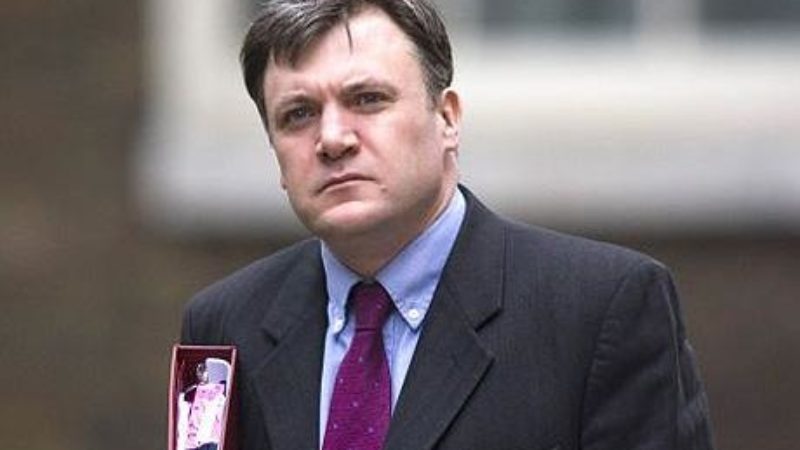
The most controversial part of Ed Balls’ recent speech was his plan to cut the winter fuel allowance for well-off pensioners. This has caused a lot of discontent among the Labour ranks, because it appears to attack one of our core notions: the principle of universalism. Neal Lawson, Chair of Compass, has argued that cutting the allowance would “sell universalism at a bargain basement price”.
Lawson is understandably concerned: universalism is the lynchpin of the welfare state. It prevents the middle and upper classes from becoming the welfare state’s enemies, indignant that they are paying for a system they do not benefit from. It ensures that everyone has a buy-in, because everyone gets something out of it. Universalism has come under a lot of scrutiny recently, but it is as vital today as it was in the early twentieth century.
Is Ed Balls betraying this Labour tradition? I don’t think so. He is suggesting a minor cut to a minor benefit received by the richest in society. He isn’t announcing that, say, pensioners’ bus passes or the NHS should become means-tested. Following the speech, Ed Balls and Ed Miliband have both reaffirmed their commitment to the principle of universalism.
In other words, it isn’t going anywhere.
Some, like Owen Jones, have argued that cutting any benefits for the well-off is a slippery slope towards dismantling of the welfare state. This argument doesn’t persuade me. There is a clear difference between means-testing the winter fuel allowance, means-testing bus passes, and means-testing the NHS. It is foolish to say that we are incapable of drawing a line in the sand.
To the things we don’t like, such as the latter two, we can just say no.
Slippery slope arguments are often employed (quite misleadingly) by people who dislike change. Norman Tebbit, for example, thinks that widening the definition of marriage to include gay people will lead to him being able to marry his brother: “It’s a slippery slope.” These kinds of arguments rarely work, though, because making the distinction between what is acceptable and what is unacceptable is fairly easy if you know what your principles are. Extending the definition of marriage a little bit, to include gay couples, is good. Extending the definition of marriage a lot, to include incest, is bad.
It isn’t difficult.
The other question that Ed Balls’ plan has raised is this: why bother cutting the winter fuel allowance at all? Well, we have to deal with the fact that the Conservatives have successfully painted Labour as the party of profligacy. By making misleading analogies with household spending and personal bankruptcy, George Osborne sold the argument to the public that the credit crunch was caused by excessive Labour over-spend, and that the only solution is fiscal austerity. After two years of Osborne’s failed economic experiment, the state of the UK economy betrays how hollow and misleading his claims were, and the public are starting to realise the truth of what Labour has been saying all along. But we cannot be afraid to say that we would make some cuts as well. Such timidity becomes evidence for the Tory label, which at the moment is still sticking. An “iron grip” has to be kept over Labour’s spending plans, or the Conservatives will tear us to pieces in the media once again.
And so we have Ed Balls’ ‘zero-base’ spending strategy. It has two major advantages that I can see. Firstly, in the short term, it restores a degree of economic credibility to Labour that was unfairly but successfully taken away by the Conservatives in 2010. It sends the message that Labour is capable of making tough decisions. Secondly, in the long term, it provides maximum flexibility to Labour to commit to further spending, without becoming overburdened with a raft of commitments before we even have a manifesto.
It’s a good strategy, then, but it requires painful choices, such as where the cuts should be made. The Conservatives have shown that they prefer cuts to fall on those who have the least: be it unemployment benefit cuts (which hit the poorest in society only) or universal cuts (which hit the poorest in society hardest). Neither can be Labour’s policy. If cuts have to be made, they should fall on the shoulders of those who have the most and are suffering the least. Means-testing winter fuel payments would do exactly that, ensuring that those who don’t need the payment (like Vince Cable and Mervyn King) aren’t receiving it, and that more important benefits can be preserved.
The policy that would really spell the death of universalism is the policy produced by a majority Conservative government, or a Conservative- UKIP Coalition. A number of Tory backbenchers of a particular political persuasion (the polite term for them, I believe, is “rabid libertarian fantasists”) are desperate to impose their vision of a low-tax, small-state utopia on Britain. With electoral success behind them, and emboldened by their recent success in pushing David Cameron around the playground, nothing would stand in their way.
That’s why winning the next election has to be our priority, a goal we can only achieve if we restore Labour’s economic credibility with the public. Once we have won the next election, then Ed Balls can become more daring with his spending plans.



More from LabourList
Haigh: We won’t shut ticket offices or cut jobs – or nationalise water
Lou Haigh to reveal ‘roadmap’ for public ownership of railways within first term
Rochdale Labour says brick thrown at candidate’s home with ‘f*** Labour’ note